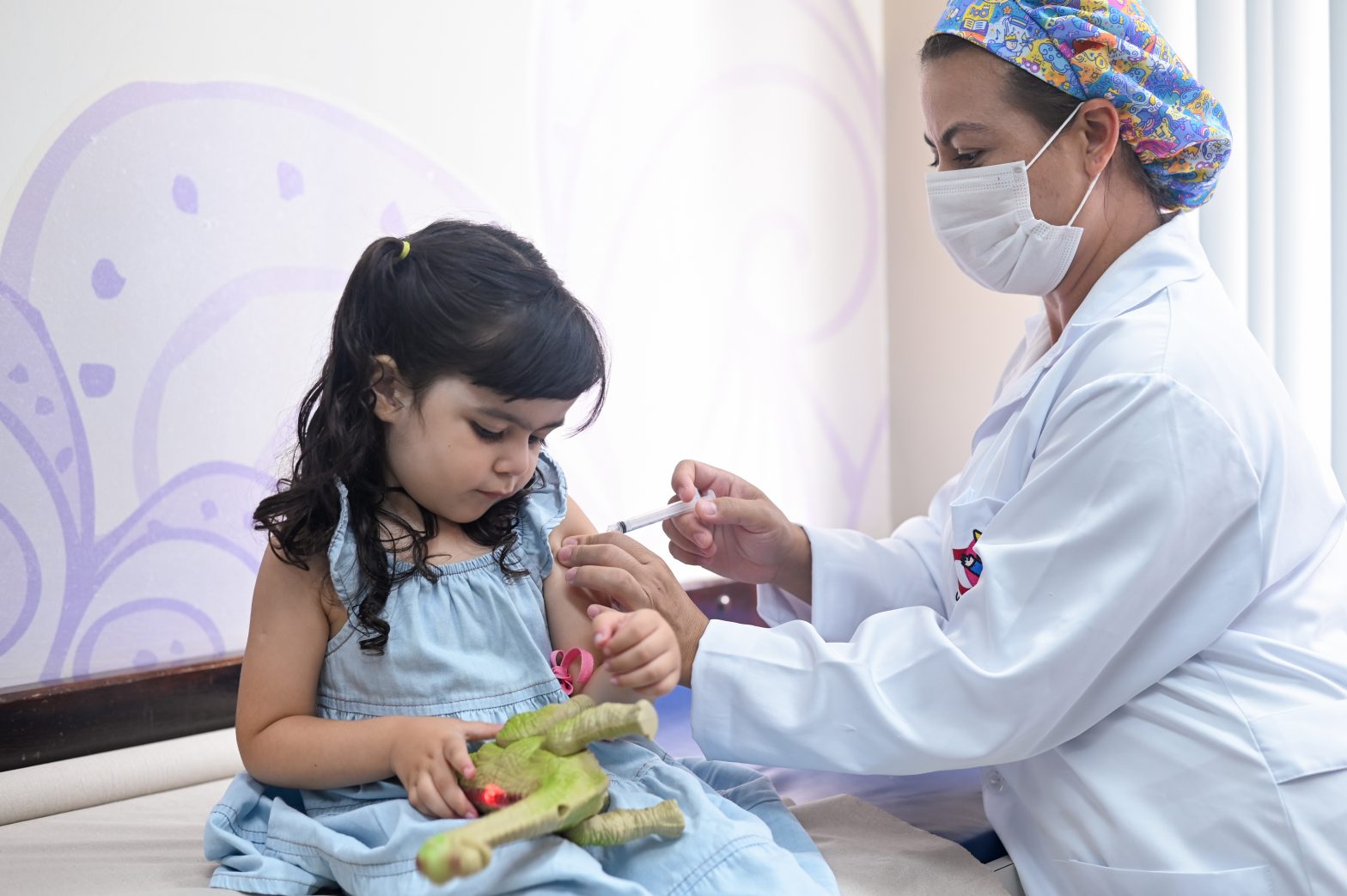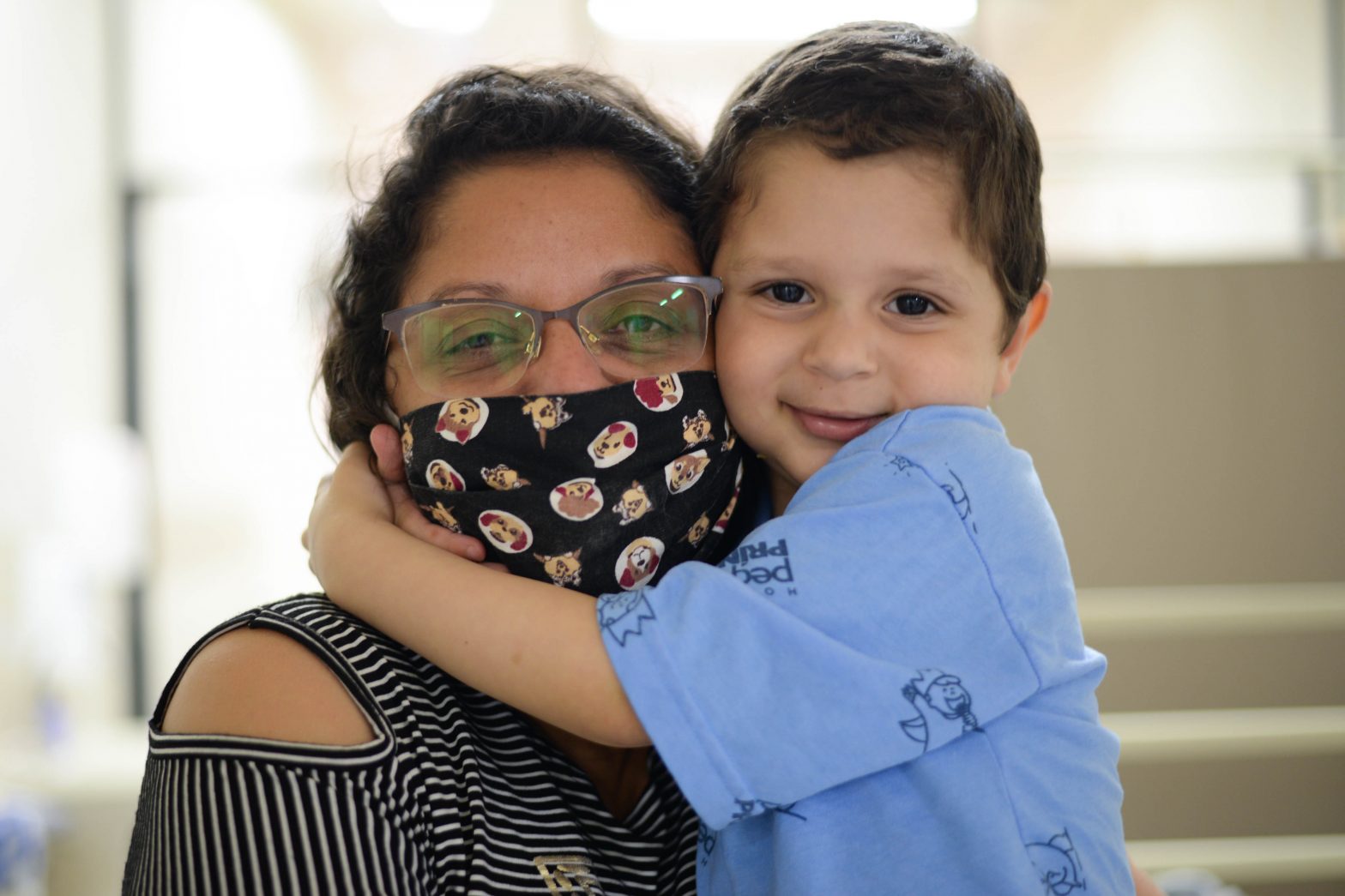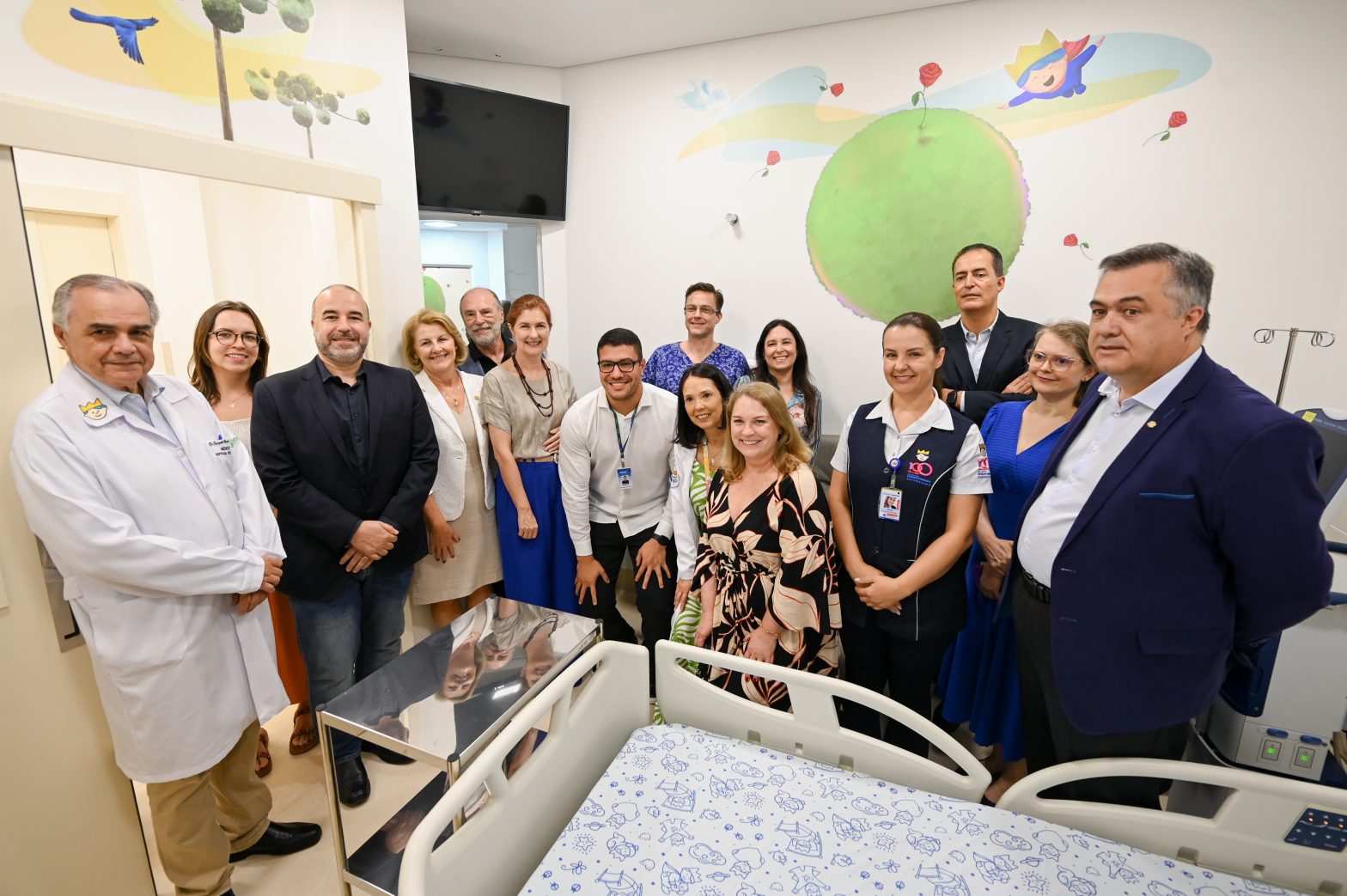Pequeno Príncipe qualifies child care in public primary care and emergency care units
Curitiba, Paranaguá, and Iguape, in Paraná and São Paulo states, already have the knowledge of the Hospital’s pediatricians to offer more effective care
Care for children and adolescents in public primary care units and emergency care units, maintained by the Brazilian Public Health System (SUS, abbreviation in Portuguese) in cities across Brazil, is not always carried out by pediatricians. These service points are classified as primary care within the SUS structure, and there is no requirement to offer a specialized professional. In the vast majority of these units, care is provided by general practitioners or other health professionals, such as nurses, who provide the first care and recommend treatment, or refer patients to specialists, or even, in more serious cases, refer patients for medium and high complexity units, such as Pequeno Príncipe Hospital.
The lacks of a pediatrician at the first consultation often delays the diagnosis and/or the start of effective treatment. In Pequeno Príncipe, it is common for children with worsening conditions to arrive, who report having undergone several consultations at health centers in their cities without the care received being resolute, especially in children with chronic complaints. To contribute to the qualification of care in these units that make up primary healthcare, Pequeno Príncipe Hospital structured a telepediatrics program that is already benefiting children and adolescents in three municipalities: Curitiba (in Paraná state), Paranaguá (also in Paraná), and Iguape (located in São Paulo state).
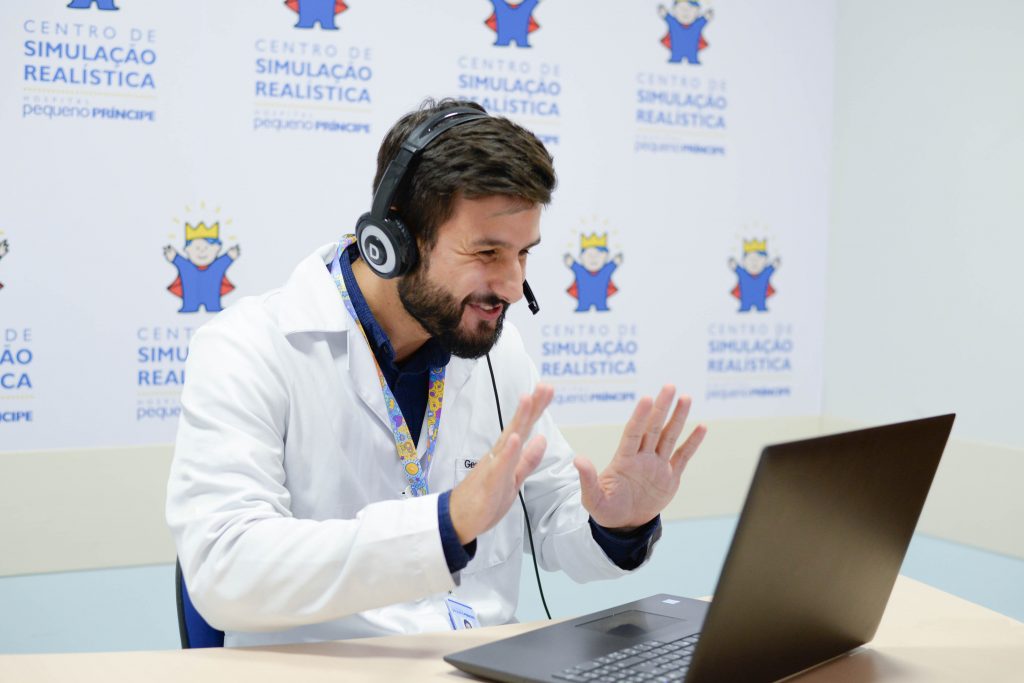
Operation models
The program works as follows: The municipality experiencing delay or more complex pediatric demand in reference units hires telepediatrics from Pequeno Príncipe. Depending on the demand of each city, the Hospital provides pediatricians who provide remote care to patients, mediated by nursing professionals present in the units (teleinterconsultation) or who discuss cases with general medical professionals who work in these units (teleconsultation). In both operating models, the initiative is already showing important results.
Isis Rocha Teixeira, from Paranaguá, is one of the children benefiting from the program. In September 2022, when she was 6 months old, her mother, Rosane Teixeira Rocha, noticed the appearance of pubic hair on her baby. The private pediatrician who monitored the child advised the family to look for a pediatric endocrinologist. As the city’s health units do not have a specialist, the mother turned to the only SUS unit in the city that offered pediatrics. The doctor requested imaging and laboratory tests and, upon seeing the results, the severity of the condition was confirmed.
Isis was then referred to the primary care unit which had the Pequeno Príncipe telepediatrics program. In the remote consultation, the Hospital specialist recommended the girl’s immediate hospitalization, who was transferred to Curitiba on the same day. Two months after the mother’s suspicion, further investigation by the Pequeno Príncipe confirmed its severity: It was adrenocortical carcinoma. Five days after being admitted, Isis underwent surgery and removed a 3.5-centimeter tumor, considered large for her age. The removal of the tumor was complete, and the child did not need chemotherapy, but continues to be monitored at Pequeno Príncipe.
The family also underwent genetic counseling at the Pelé Pequeno Príncipe Research Institute, which has been carrying out research related to this type of cancer for 17 years. “This is a very aggressive type of cancer, with a high mortality rate in children. The tumor does not respond well to chemotherapy treatment, and surgery is the treatment that brings the best healing results, but it needs to be done early. The smaller the tumor, the greater the patient’s chances of life,” says doctor and scientist Bonald Cavalcante de Figueiredo, research coordinator.
“Pediatric care requires a lot of specialized knowledge to offer the patient and family the best care strategy, considering that the patient, due to their age, is unable to express what they feel and, depending on the context, it happens that the adult they accompany has difficulties in providing information. With this initiative, which provides specialists in children, we reduce vulnerabilities, democratize access, and qualify assistance. The care of a qualified pediatrician is a game-changer and can truly change a child’s story,” argues the doctor responsible for telepediatrics at Pequeno Príncipe, Rafaela Wagner.
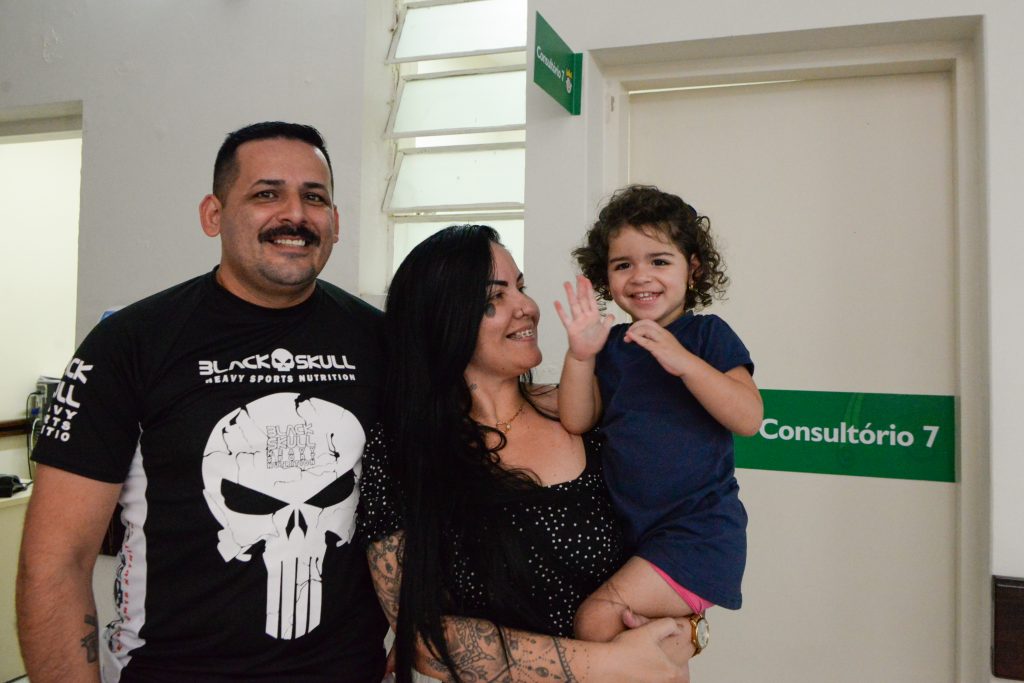
Participating municipalities
The first municipality to enter into a partnership with Pequeno Príncipe was Iguape, in the state of São Paulo. There, services are aimed at children aged 0 to 18 with more complex profiles, with chronic complaints, comorbidities, and high-risk child care. Pequeno Príncipe’s doctors carry out remote consultations, mediated by nurses present in the units, using TytoCare (see below) and guide treatment.
In Paranaguá, on the coast of Paraná, teleconsultations are also carried out intermediated by nurses using TytoCare. The service is available for children of all ages, but the focus is on early childhood (0 to 6 years). The project started in two primary care units in locations further away from the city, was expanded to three, and the proposal to include two more units in the model is being analyzed.
In Curitiba, the project is part of the Municipal Health Department’s strategy to consolidate online teleconsulting of specialties in emergency care units. “It is health 4.1, increasingly advancing in technological solutions that impact care in our services. The doctors who works in these units can answer questions and discuss clinical cases with specialists, often handling the situation in the unit itself, without the need to refer the patient to hospitalization,” explains the municipal secretary of Health, Beatriz Battistella.
The pilot project was implemented at Tatuquara Emergency Care Unit. The unit’s doctors discussed the cases of children who were under observation there with pediatricians from Pequeno Príncipe, who indicated the tests to be requested and observed the evolution of the case to define whether hospitalization would be necessary or whether the child could be released for home treatment. About 50% of the cases analyzed in teleconsultation were handled in the unit itself, without the need to refer the patient to hospitalization.
Gradually, the project was expanded and is now implemented in the nine emergency care units in Curitiba. Initially, the partnership only provided for the discussion of cases between doctors. With the evolution and success of the project, a system was created to meet the demands of specialties in a hybrid way, expanding the number of advisory.
About the TytoCare
TytoCare is an Israeli technology that was brought to Brazil by Pequeno Príncipe. It is a small portable device that allows the doctor to check the patient’s signs even from a distance. With the equipment, it is possible to measure temperature, measure heart rate, auscultate the heart, lungs and abdominal region, in addition to generating images of the throat, ear, and skin. The device is accompanied by an application that guides the person performing the exam, as well as transmitting data in real time to a platform that is accessed by Pequeno Príncipe doctors.
More
COVID-19 and dengue fever are threats to the health of children in Brazil
The first quarter of 2024 was marked by an increase in the number of cases and deaths caused by the two diseases
Tax waiver transforms the lives of children and adolescents
Allocation of Income Tax contributes to equity in healthcare for patients from all over the country
Pequeno Príncipe opens eight new intensive care beds
Implemented with the support of Volkswagen and the Government of the State of Paraná, the structure increases the capacity of ICU vacancies by 12%


